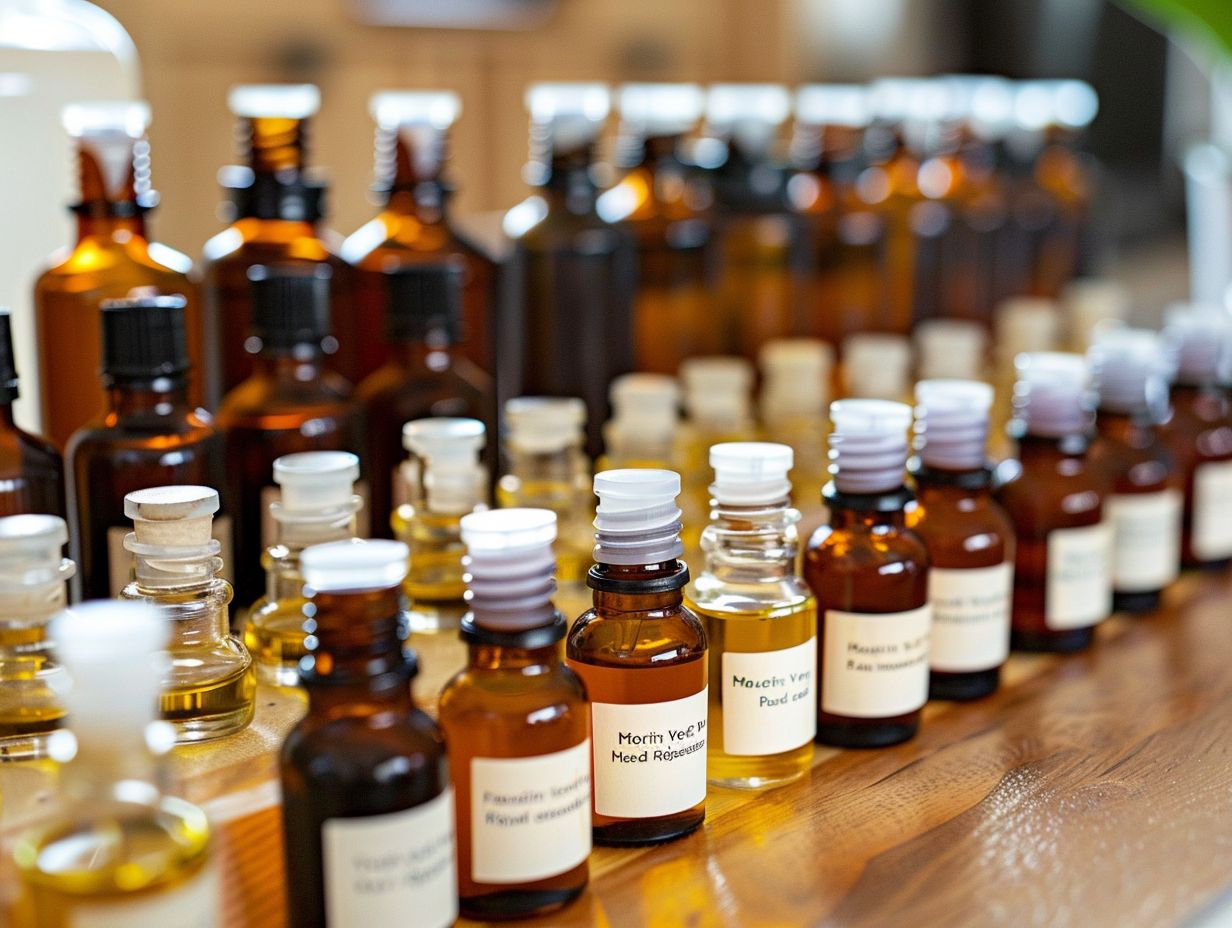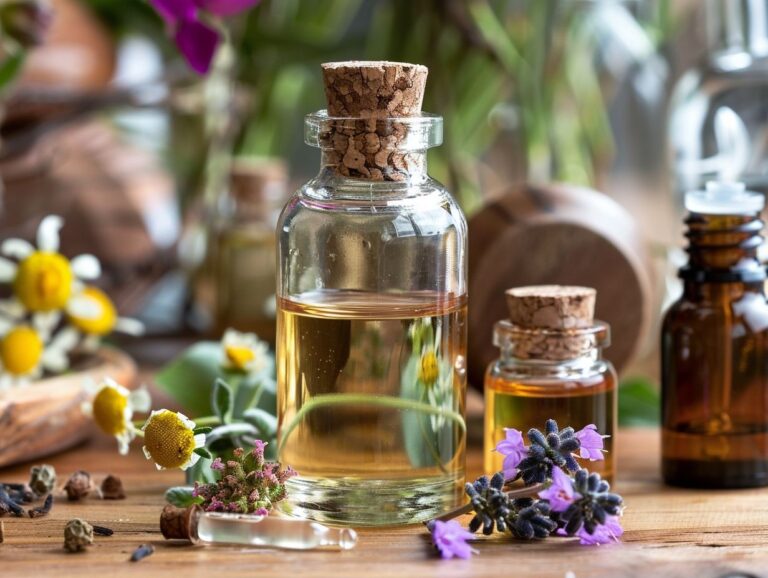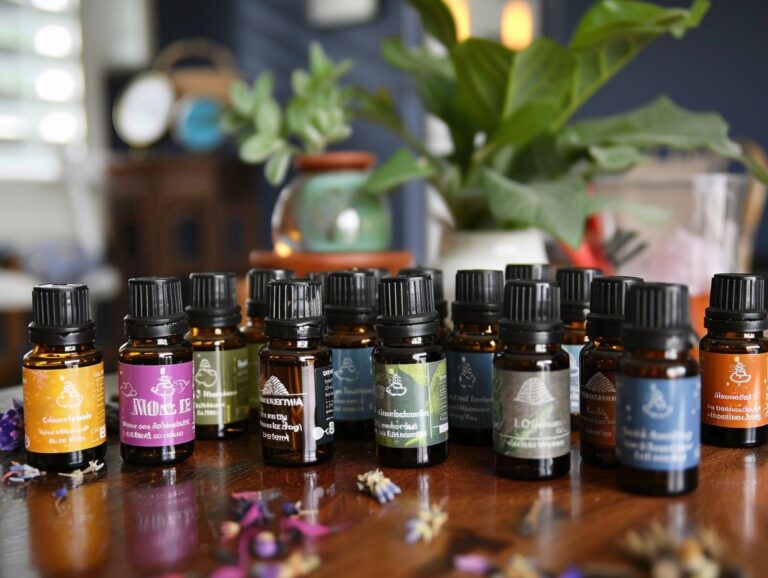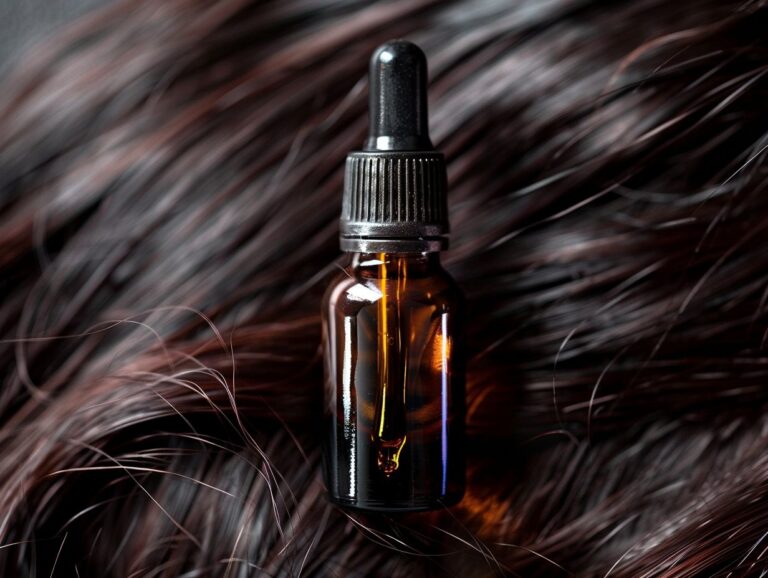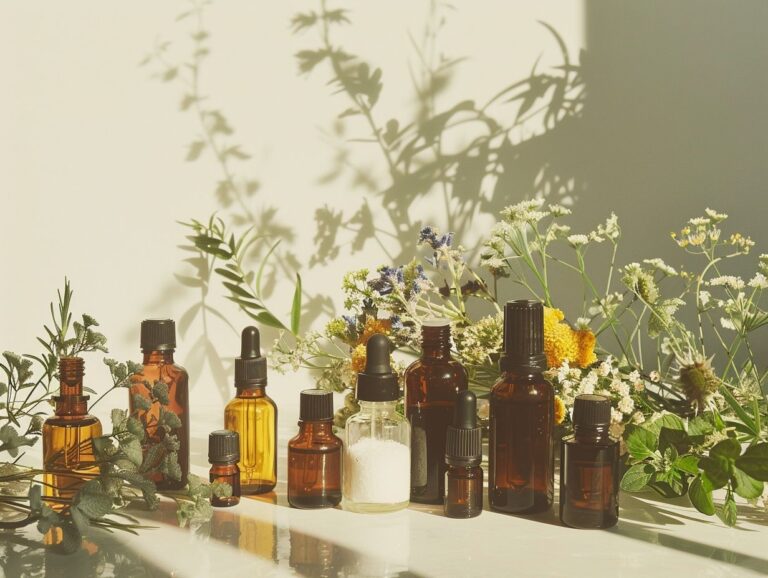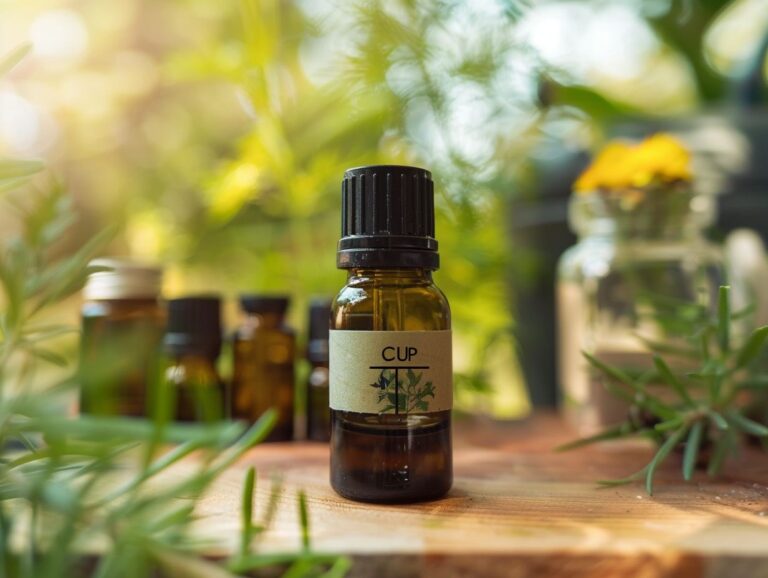What Essential Oils Prevent Scarring
Essential oils have gained popularity for their various therapeutic benefits, including their ability to prevent scarring.
Discover what essential oils are and how they work to minimize the appearance of scars in this comprehensive guide.
We will explore the different types of scars, the best essential oils for scars, and how to use them safely and effectively.
Additionally, we will discuss alternative treatments for scars and compare their pros and cons to using essential oils.
If you’re looking to improve the appearance of scars naturally, keep reading to learn more!
Key Takeaways:
What Are Essential Oils?
Essential oils are concentrated plant extracts that capture the natural aroma and flavor of the plant. They are often used in aromatherapy for their therapeutic properties.
These oils are typically extracted through methods such as steam distillation or cold pressing, preserving the volatile compounds that give them their distinct fragrance and beneficial properties. From lavender for relaxation to tea tree for its antimicrobial effects, each essential oil offers a unique set of benefits. In aromatherapy, they can be inhaled, applied topically, or even ingested under the guidance of a trained professional.
In skincare, essential oils are prized for their ability to nourish the skin, reduce inflammation, and promote a healthy complexion. With their antioxidant and antimicrobial properties, oils like lavender, rose, and frankincense are commonly found in skincare products. Essential oils have long been revered for their role in promoting overall well-being and mental health. Oils like peppermint for energy, bergamot for stress relief, and ylang ylang for relaxation can be diffused at home or used in massage therapies to enhance mood and alleviate various symptoms.
What Causes Scarring?
Scarring occurs as a result of the body’s natural healing process after a trauma or injury that affects the skin’s deep layers. Collagen, elastin, and proteins play crucial roles in forming scar tissue.
Collagen, the most abundant protein in the human body, provides structural support to the skin during wound healing by forming a scaffold for new tissue growth. Elastin, on the other hand, helps the skin to stretch and go back to its original shape after the injury. Proteins like fibronectin and fibrinogen aid in clotting and forming a protective barrier over the wound. Different types of scars, such as hypertrophic scars that result from an overproduction of collagen, keloid scars which extend beyond the original injury site, and atrophic scars that leave depressions in the skin, showcase the complex nature of scar formation.
What Are The Different Types Of Scars?
Scars can manifest in various forms, including hypertrophic scars, keloid scars, atrophic scars, and stretch marks, each with distinct characteristics and causes.
Hypertrophic scars are raised, red scars that form at the site of a wound. They occur when the body produces too much collagen during the healing process. In contrast, keloid scars extend beyond the borders of the original wound and are often itchy or painful. These scars are caused by an overproduction of collagen and can be challenging to treat.
Atrophic scars are characterized by a loss of tissue, resulting in a sunken appearance. They commonly occur in conditions like acne or chickenpox. Lastly, stretch marks are caused by rapid stretching of the skin, leading to thin, reddish or purplish lines. They are common during puberty, pregnancy, or rapid weight gain.
How Can Essential Oils Help Prevent Scarring?
Essential oils offer natural remedies that can aid in preventing scarring by promoting skin regeneration, reducing inflammation, and supporting wound healing.
These oils are derived from plants and have been used for centuries for their healing properties in traditional medicine. Their molecular composition allows them to penetrate the skin easily, delivering therapeutic benefits directly to the affected area. Studies have shown that certain essential oils, like lavender, rosehip, and tea tree oil, possess antimicrobial, anti-inflammatory, and antioxidant properties that can help minimize scarring by promoting tissue repair and collagen production.
The aromatherapy benefits of essential oils can reduce stress and anxiety, which are known to impair the natural healing process.
Incorporating essential oils in wound care can accelerate healing, minimize scarring, and promote healthier-looking skin.
What Are The Best Essential Oils For Scars?
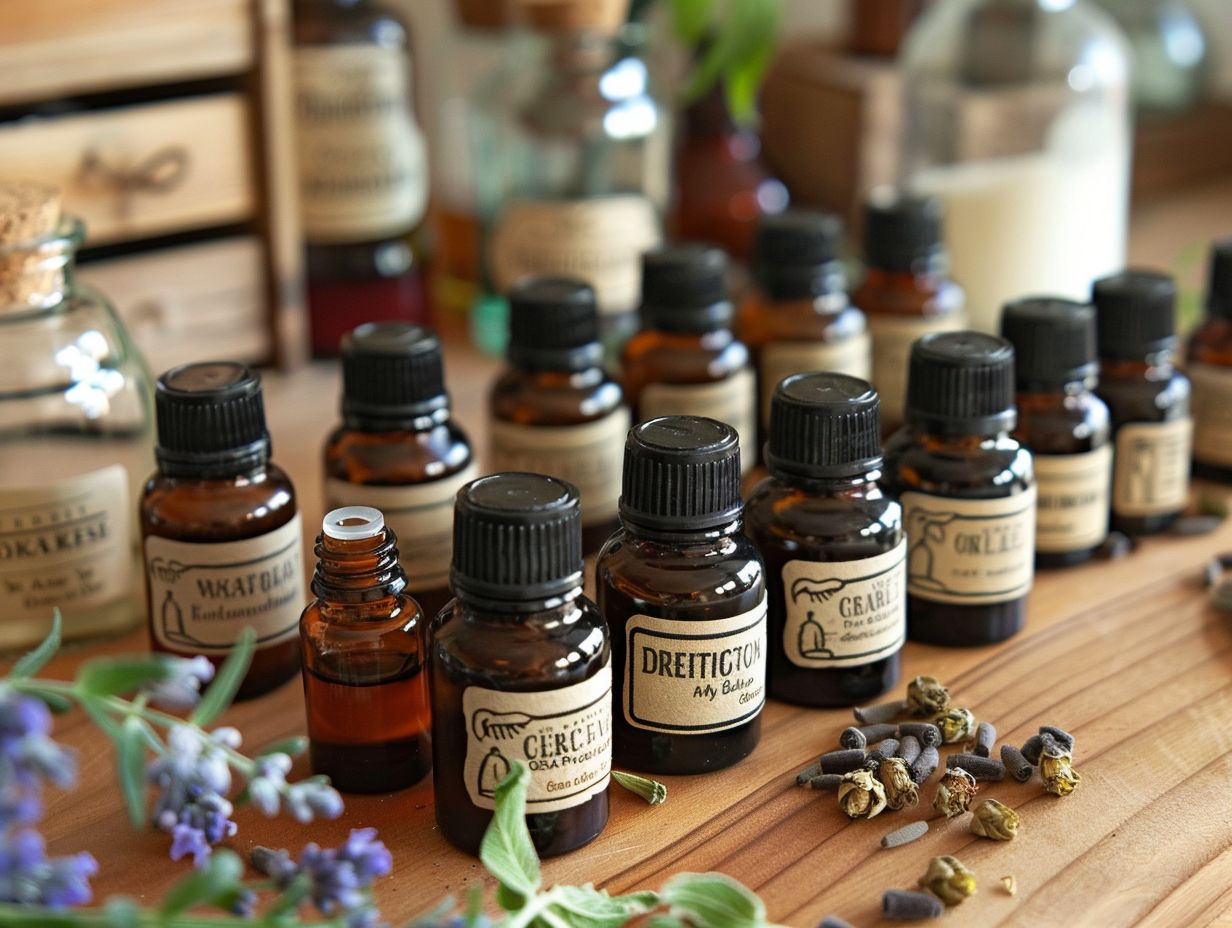
Each of these essential oils carries unique properties that make them effective in scar treatment. For example, lavender oil is renowned for its antiseptic and anti-inflammatory qualities, aiding in skin rejuvenation. Chamomile oil is gentle yet potent, known for its calming effect on the skin and ability to reduce redness. On the other hand, frankincense oil, with its regenerative properties, promotes the growth of new skin cells, accelerating the healing process.
How Do Essential Oils Work To Prevent Scarring?
Essential oils work to prevent scarring by promoting collagen production, supporting elastin formation, and aiding in the body’s natural wound healing process. Lavender oil, for example, has been studied for its benefits in wound care and scar management.
Collagen is a crucial component in skin health, providing structural support and strength. Essential oils like rosehip oil have been found to stimulate collagen synthesis, helping to improve skin elasticity and reduce the appearance of scars. Elastin, on the other hand, is responsible for skin flexibility and resilience.
Studies have shown that essential oils such as chamomile oil can enhance elastin production, contributing to smoother and more supple skin. Essential oils play a vital role in protein synthesis, which is essential for tissue repair and regeneration.
What Are The Safety Precautions When Using Essential Oils For Scars?
When using essential oils for scars, it’s essential to be aware of potential side effects, practice caution in their application, especially in topical use, and consider individual sensitivities.
One crucial step in safely using essential oils on scars is performing a patch test on a small area of skin before widespread application. This test helps identify any adverse reactions or allergies that may occur, allowing you to avoid potential skin irritation or inflammation.
Proper topical application involves diluting the essential oil with a carrier oil
to reduce the risk of skin irritation. Always follow recommended ratios, as undiluted essential oils can be too potent for direct skin contact.
Can Essential Oils Cause Allergic Reactions?
While essential oils are generally considered safe, they can trigger allergic reactions in some individuals, particularly those with sensitive skin or underlying skin conditions.
When these reactions occur, they can manifest as redness, itching, swelling, or even a rash on the skin. People with conditions like eczema or psoriasis may be more prone to experiencing such reactions due to their compromised skin barrier.
It’s important to be aware of the potential risks and conduct a patch test before using any new essential oil topically. This involves applying a diluted amount of oil to a small area of skin and monitoring for any adverse reactions.
What Are The Risks Of Using Essential Oils For Scars?
While essential oils offer benefits in scarring prevention and treatment, there are risks associated with improper usage, such as skin irritation, potential exacerbation of scars, or allergic reactions.
It is crucial to understand that essential oils are highly concentrated substances that should never be applied directly to the skin without proper dilution.
Improper dilution can lead to adverse effects like chemical burns or heightened sensitivity, which can further damage the skin and worsen existing scars.
Certain essential oils may not be suitable for all skin types and could trigger allergic reactions, resulting in inflammation and potentially more pronounced scarring.
How To Use Essential Oils For Scars?
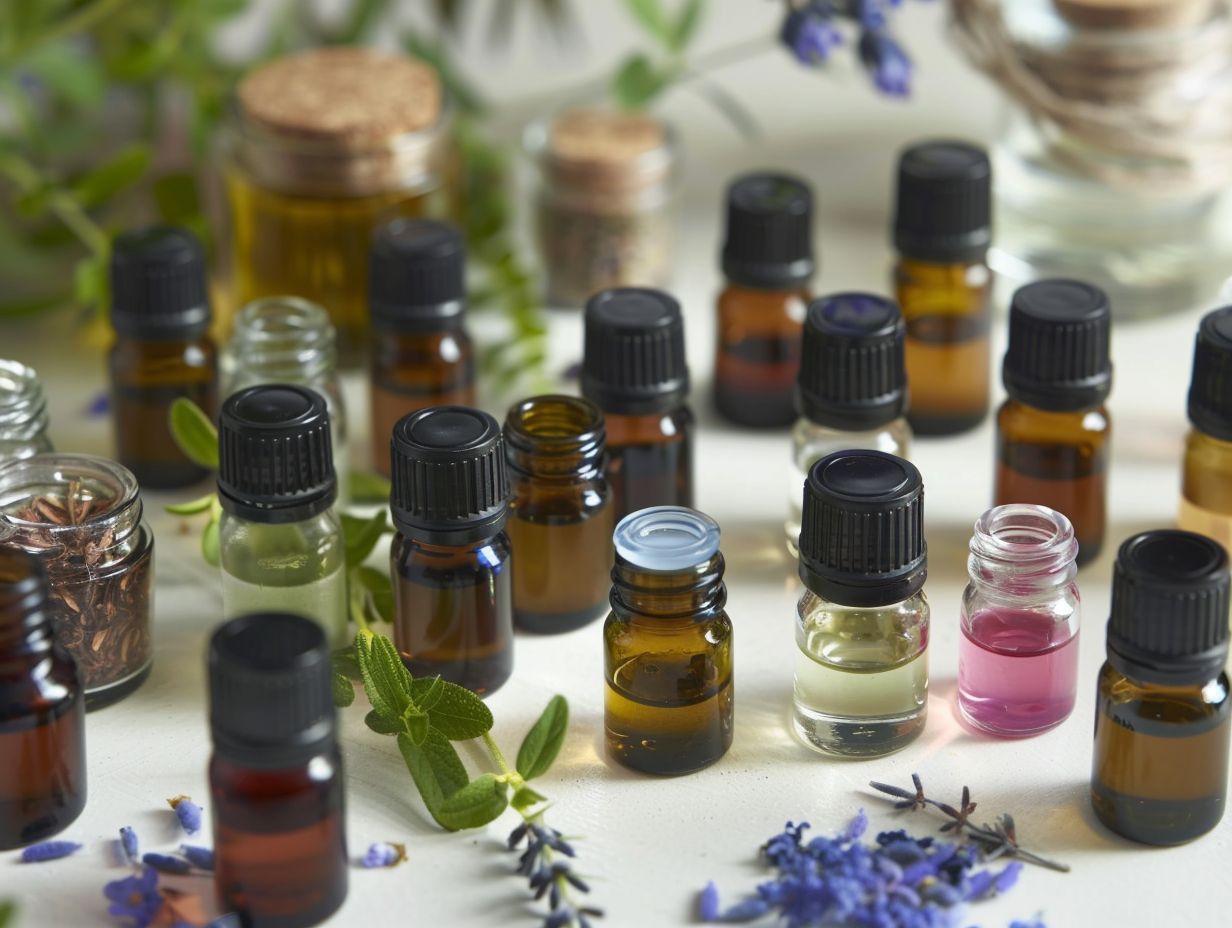
There are various methods to use essential oils for scar treatment, including dilution with carrier oils, direct topical application, and incorporation into skincare routines.
Regarding dilution with carrier oils, it is essential to choose oils that complement the healing properties of the essential oils. For example, rosehip seed oil, known for its ability to regenerate skin cells, can be an excellent option for blending with essential oils like lavender or frankincense. These combinations not only enhance the effectiveness of the essential oils but also provide added nourishment to the skin.
What Are The Different Methods Of Applying Essential Oils?
Applying essential oils for scars can involve methods such as aromatherapy, gentle scar massage techniques, and targeted application based on scar tissue assessment.
One popular method is creating custom aromatherapy blends to address specific scar treatment needs. These blends can include oils like lavender for its soothing properties and frankincense for its skin rejuvenation effects. Scar massage practices involving the use of essential oils can help improve circulation, break down scar tissue, and promote faster healing.
It is crucial to assess scar tissue before determining the most suitable essential oils and application techniques. Factors such as scar age, type, and sensitivity can influence the choice of oils and their dilution ratios. Integrating aromatherapy into scar treatment requires a holistic approach that considers both the physical and emotional aspects of healing.
What Are The Recommended Dilution Ratios?
Recommended dilution ratios for essential oils vary based on factors like the specific oil used, individual skin sensitivity, and the intended method of topical application, often involving carrier oils for safe usage.
Regarding diluting essential oils, a general guideline is to use a 2% dilution for adults, which is approximately 12 drops of essential oil per ounce of carrier oil. For children, elderly individuals, or those with sensitive skin, a lower dilution of 1% or less may be more appropriate to prevent skin irritation.
It is crucial to understand that some essential oils are more potent and may require even further dilution. Oils like cinnamon, clove, and oregano are known for their strong properties and should be diluted even more than usual.
When choosing a carrier oil, opt for options like jojoba, coconut, sweet almond, or olive oil, as they help dilute the essential oils without compromising their efficacy. Remember to always perform a patch test before full application to ensure no adverse reactions.
How Often Should Essential Oils Be Applied?
The frequency of applying essential oils for scar reduction and wound healing can vary depending on individual needs, the severity of scarring, and the desired pace of skin regeneration. , }
Regarding reduce scars and promote optimal healing, essential oils play a crucial role in their ability to support the skin regeneration process. By incorporating essential oils such as lavender, tea tree, or frankincense, individuals can harness the natural healing properties of these potent botanical extracts.
- For fresh wounds or recent scars, applying essential oils 2-3 times a day may be beneficial to kickstart the healing process and prevent excessive scarring.
- For older scars or areas that require intensive treatment, a more frequent application of essential oils, possibly up to 5 times a day, can help in fading scars and promoting skin rejuvenation.
Understanding the ideal frequency of essential oil application is essential in achieving the desired results without overwhelming the skin’s natural healing mechanisms. By tailoring the application frequency to specific scar types and skin conditions, individuals can optimize the benefits of essential oils in scar reduction and wound healing.
Are There Any Alternative Treatments For Scars?
Plus essential oils, various conventional treatments and alternative methods exist for scar prevention and addressing scarring, offering a holistic approach to skin health.
Conventional therapies such as laser treatments, steroid injections, and surgical procedures have shown effectiveness in reducing the appearance of scars. While these methods may require medical supervision, they can significantly improve the texture and pigmentation of the skin.
Lifestyle modifications play a crucial role in scar prevention. Maintaining a healthy diet rich in antioxidants and staying hydrated can promote skin regeneration and reduce scarring. Avoiding smoking and excessive sun exposure also aid in keeping the skin healthy.
Regarding natural remedies, vitamin E and aloe vera are well-known for their healing properties. Applying these topically can help in soothing the skin and minimizing scar formation.
What Are The Pros And Cons Of Using Essential Oils Compared To Other Treatments?
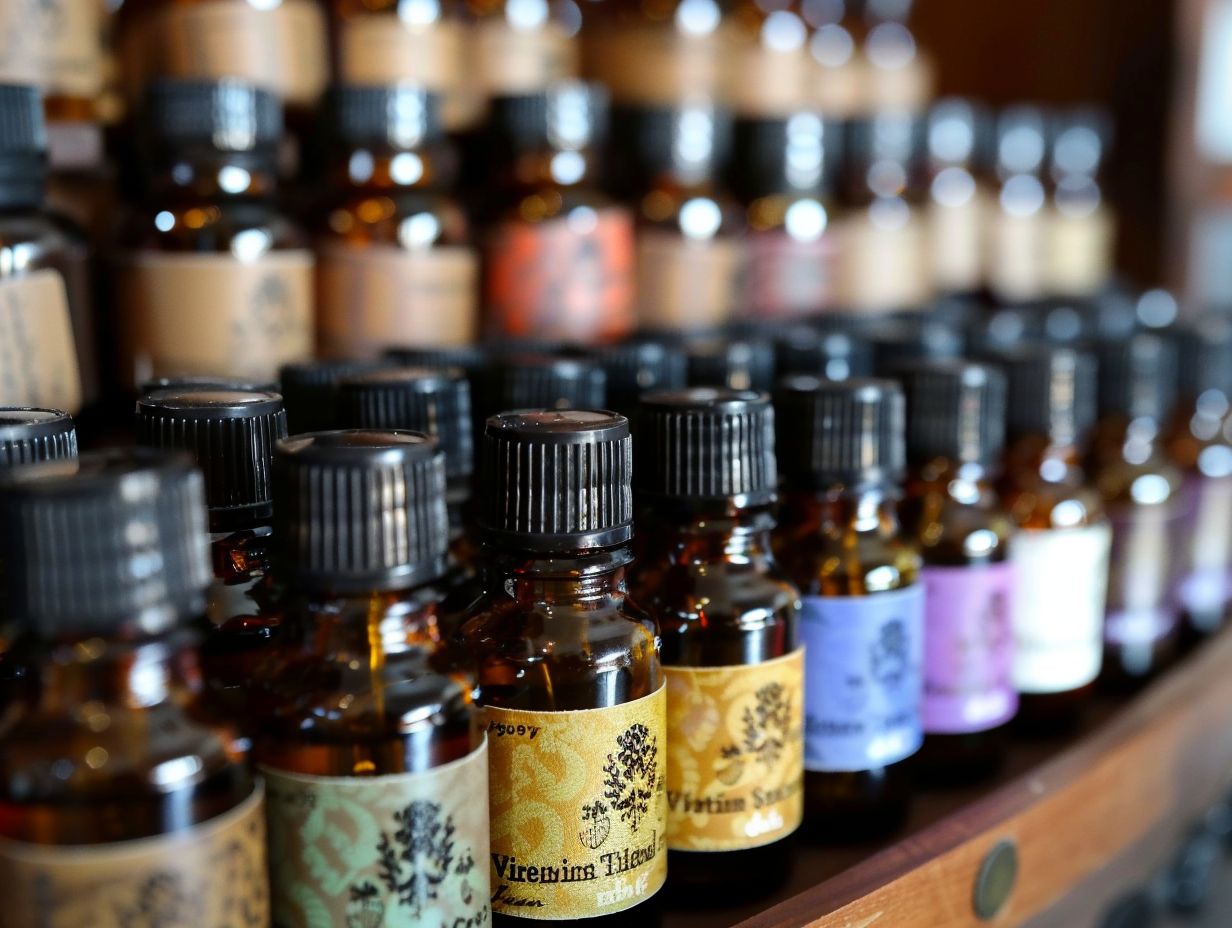
Essential oils, such as tea tree oil, lavender oil, and rosehip oil, have gained popularity for their natural healing properties and potential benefits in reducing scar appearance. These oils are known for their anti-inflammatory, antioxidant, and antimicrobial properties, which can support skin regeneration and overall skin health.
While essential oils can be gentle and soothing on the skin, their effectiveness in addressing deep or raised scars may be limited compared to medical interventions. Medical treatments like laser therapy, steroid injections, and surgical procedures offer more targeted and intensive approaches to scar management, often yielding quicker and more significant results.
Frequently Asked Questions
What are essential oils that prevent scarring?
There are several essential oils that are known for their ability to prevent scarring, including lavender, rosehip, frankincense, helichrysum, and tea tree oil.
How do essential oils prevent scarring?
Essential oils contain powerful anti-inflammatory and skin-regenerating properties that help reduce the appearance of scars and promote healing. They also have antimicrobial properties that prevent infection and promote healthy skin.
Can essential oils be used on fresh wounds to prevent scarring?
Yes, essential oils can be used on fresh wounds to prevent scarring. However, it is important to dilute the oils properly and consult with a healthcare professional if the wound is severe.
Which essential oils are best for preventing acne scars?
Tea tree oil, lavender, and frankincense are all great options for preventing acne scars. Tea tree oil helps fight bacteria that can lead to scarring, while lavender and frankincense promote healing and reduce inflammation.
Are there any precautions to take when using essential oils for scarring?
It is important to always dilute essential oils properly before applying them on the skin. Some oils may also cause skin irritation, so it is best to do a patch test first. If you have any existing medical conditions or are pregnant or breastfeeding, consult with a healthcare professional before using essential oils.
Can essential oils completely remove scars?
While essential oils can help reduce the appearance of scars and prevent new ones from forming, they may not completely remove old scars. However, consistent use of essential oils can significantly improve the appearance and texture of scars over time.

